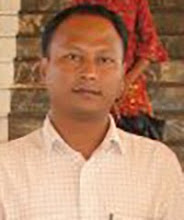Fifth Buddhist council
The Fifth Buddhist council took place in Mandalay, Burma (Myanmar) in 1871 A.D. in the reign of King Mindon. The chief objective of this meeting was to recite all the teachings of the Buddha and examine them in minute detail to see if any of them had been altered, distorted or dropped. It was presided over by three Elders, the Venerable Mahathera Jagarabhivamsa, the Venerable Narindabhidhaja, and the Venerable Mahathera Sumangalasami in the company of 2,400 monks. Their joint Dhamma recitation lasted five months.
It was also the work of this council to cause the entire Tipitaka to be inscribed on 729 marble slabs for posterity in the Myanmar script after its recitation. Each marble slab was 5 1/2 feet high, 3 1/2 feet wide and about 5 inches thick. This monumental task was done by many skillful craftsmen. Upon completion, each slab was housed in beautiful "miniature Pitaka" pagodas on a special site in the grounds of King Mindon's Kuthodaw Pagoda at the foot of Mandalay Hill. It is the World's largest book that stands to this day.
The Fifth Buddhist council was a Burmese affair, and other Buddhist countries were not involved in it. The Theravadin multi-national Sixth Buddhist council was also held in Burma, and this council received the name of 'Sixth Buddhist council', thereby implicitly recognizing the fifth, even though no other nations were involved in the fifth council, and the results of the fifth council were limited to the Burmese edition of the Pali Canon only.
It was also the work of this council to cause the entire Tipitaka to be inscribed on 729 marble slabs for posterity in the Myanmar script after its recitation. Each marble slab was 5 1/2 feet high, 3 1/2 feet wide and about 5 inches thick. This monumental task was done by many skillful craftsmen. Upon completion, each slab was housed in beautiful "miniature Pitaka" pagodas on a special site in the grounds of King Mindon's Kuthodaw Pagoda at the foot of Mandalay Hill. It is the World's largest book that stands to this day.
The Fifth Buddhist council was a Burmese affair, and other Buddhist countries were not involved in it. The Theravadin multi-national Sixth Buddhist council was also held in Burma, and this council received the name of 'Sixth Buddhist council', thereby implicitly recognizing the fifth, even though no other nations were involved in the fifth council, and the results of the fifth council were limited to the Burmese edition of the Pali Canon only.








|